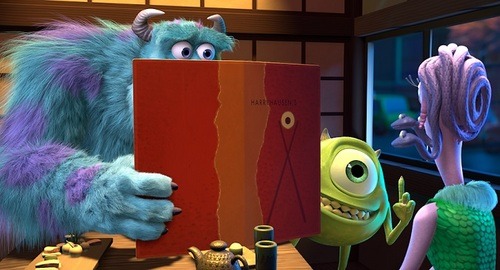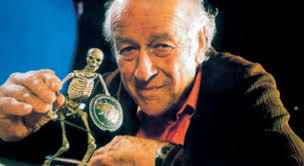I woke up in The Fog with my head spinning. I didn’t know the time. There is no sense of “time” here. Seconds feel like hours and the replaying recordings of screaming echoing through the halls only adds to the lack of perception.
We were trapped in some kind of hospital. A large wooden sign above me read Lery’s Memorial Institute. The dripping of the broken sinks and the squeaking of the metal beds rolling even with no one was on or around them. It’s like they’re crying.
The dead who had not yet decomposed who were trapped in this place of murder were hung up like cattle. Grotesque and repulsively distorted in different positions. Dismembered and bloated. Something only a Nightmare could manifest.
It was my turn soon. Three others had awoken in this place before me as well. Jake.. Kate.. and David.
We had one option.. Fix the generators and open the door. For the Killers could not pass through them like us. A sick and twisted game no doubt.
Which as a team, we failed.
David tried to protect Kate by tending to her wounds after her first bludgeon to the head, but it was a fool’s errand.
They would have found them soon enough because her screams of Madness were constant and tumultuous. One you get Shock Treated by the Doctor, you can't control your impulsive screaming. She had gotten loud, and The Madness had infected her brain so much that she saw The Doctor everywhere she turned, dooming them both for eternity.
But it was the Nurses Calling that soon brought her to both of them. The Nurse can sense your attempt to heal if you dare try in range of her heartbeat. And now they are rotting bodies on hooks waiting to be pulled up to the sky in the sweet release of death. No more than 20 meters apart: watching each other suffer. The hook wasn’t quite through the heart, so their death is slower than those victims of the tragic, Lobotomizing Momento Mori we know could come. I can’t help them now. The Nurse would come back and kill them instantly. I almost envy them.
Jake was found by The Doctor in the library bleeding all over his “Interview” cassette tapes and Doctor’s notes. Jake had accidentally blown up the nearby generator and tried to hide to no avail. He had no time to finish healing himself and he was trying to get the generator done. Relying on his bodies Adrenaline to get him out of this place. His heroic priorities would soon make him dead on the floor. He was killed in front of me, while I was hiding in a locker like a coward.
I waited for the heartbeat to cease. It was me now against both of them hoping to find a way to escape. Jake had been carrying a medkit. As he bit down hard on his belt, he held back tears as he attempted to sew up his own wounds from his first encounter with the Nurse and her cleaver. He had managed to escape from her once thanks to Kate and David taking her attention. No help from me of course. My selfishness was in vain.
David and Kate were the brave ones. They saved him from his hooked imprisonment before being taken by the Entity, as his time was almost up and the Demonic claws were beginning to enter every orifice on his body. He got away for a moment, but the dark end was inevitable. We were all sent here to die to the hands of the Doctor and his twisted mistress.
The insane Doctor Carter enjoyed watching as the metal hook pierced their skin and organs. They yelled in agony and he started to Whistle along jubilantly.
Laughing; he was pleased with himself and his potential sacrifice for the Entity..
When the Entity was satisfied, the Killers are rewarded.
When The Doctor found Jake again bleeding in his library, he took it upon himself to kill the boy in what way felt like a otherworldly gift from his God. It was a dark blessing given to him: To have the opportunity to kill with his own hands before the grace of The Entity after the other two had died rightly- Their black souls consumed by the sky.
This one was his.
Others before him chose different means of torture killing. There was a wide selection of scalpels and other blades to rearrange the likeness of their victims.. Human flesh is so fragile and easily manipulated.
But that wasn't good enough for The Doctor.
Carter preferred the intimacy of what he called “Shock Therapy”. As lightning pulsed from his fingertips into the temples, the High Stimulus Electrodes burning the brain alive made him feel completed. A jolt of energy only comparable to a mind numbing high of great proportion.
He would leave them convulsing on the floor afterwards. Eyes melted and mouth agape. Waiting for The Nurse to patrol the rooms and come across this lifeless body to rot away and the soul to be consumed. Because for the victims to be hooked and sacrificed to The Entity, they must still be breathing.
I crouched beside Jake and quietly mourned. He had saved me before and used whatever he had left to address my bleeding from the iron spiked baseball bat The Doctor had hit me with earlier.
I took his belt to bite and help mask the pain. Remembering and channeling his brave Iron Will.
I suddenly heard a soft heartbeat and panicked. I needed to stop bleeding on the ground or I could be tracked. A nearby set of stairs revealed a chest at the bottom. I carefully walked down to the basement where it smelled like death and disease. It was humid and hot down there. Like behind the wooden walls lay the passage to Hell. I searched through the chest looking for something that could possibly help me.. A new medkit or a flashlight maybe. But there was nothing. A broken key, dust and some dirty bandages.. I was losing hope now.
Though biting Jake’s belt helped suppress the sounds of anguish, I could not avoid the coughing that seemed to manifest from a sudden blockage in my throat. The air was thicker down there, I could smell the flesh and it was making me sick. My lips feeling cold, I started to lose color and choke.
I got dizzy and ran up the stairs towards the center of the building. The electric vines emerging from Tesla Coils making thunderous crashes lit my way through the main procedure room towards the shower halls.
As I started to run, I heard a loud siren blare. The sound of the doors being powered. An Adrenaline took over me as I started to run faster towards a door I had seen earlier while they were taking Kate away.
I heard Carter approaching the door as well, his music blaring over the speaker system through the TVs in every room. He was running much faster now as the thrill of the hunt guided him,
for no one escapes death here.
I tried to hide but he could effortlessly sense me from the Whispers of Madness which had already affected my mind from our earlier encounter.
So I had to keep running trying not to hit things and leave any blood or scratch marks along the way.
Running for what seemed like an eternity, I finally reached a long hallway where there was one window and a locker. I jumped inside thinking I was safe. I waited until I couldn’t hear his music anymore…
Suddenly she flew towards me. She must have heard me whimper in pain as I caught my breath. I dropped Jake's belt somewhere and led her right to me.
As she opened the doors and grabbed me by the neck, my already damaged trachea almost rendered my scream inaudible.
I went limp in her arms as I waited to be slashed and beaten once again to be taken beyond. She carried me to one of the metal beds, keeping her hand on my neck and choking me tighter. I remember everything going dark as her cold bones caressed my cheek.
I realized in that moment that she was trapped here too. Forced to move swiftly and collect the carnage that The Doctor always left behind as his imagined Iridescent Queen of servitude with loyalty to the Entity.
She too was doomed to always needing to feed the insatiable demon known as The Entity that controlled her, The Doctor and this place.
A Mori was different than a sacrifice. It displeases The Entity if it had not already been fed. The Mori was only for the mere pleasure of it’s assailants wishing for a more personal act of murder.
She had chosen me, for I was the last one alive and the only one who would have her face be the last they see and not The Doctors. She had given to the Entity already and I was her kill. She stayed mostly silent with a Gentle Wheeze passing her bruised lips. Her eyes blind and bandaged, she could violently taste my fear.
It was over as soon as she started. There I lay; Lifeless. As she flies away to once again begin pacing.. waiting for the next time the Fog brings new life to be taken so beautifully.
She sometimes stops to notice the bed on which she killed me. Slowly rolling towards her with the sounds of soft guttural moans from my Stridor. She collects these sounds of suffering and Spasmodic Breaths in glass bottles and labels them with names to be used later at her disposal to make her stronger. At least I will always be remembered.
She suddenly hears a familiar sound in the distance. She turns and blinks. More are arriving. It's time to hunt again.
Fin.



